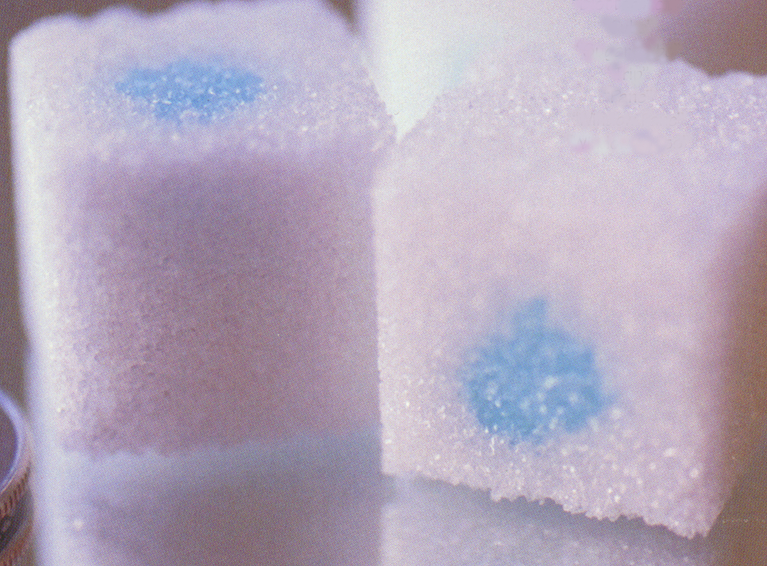LSD is an extremely powerful drug that causes distortions in thinking and feeling. These distortions include hallucinations, during which a person sees, hears, smells, or feels things that do not really exist. A dose of only 100- to 200-millionths of a gram of LSD can produce a mental and emotional experience called a trip that lasts from 8 to 12 hours. Most scientists think that people who use LSD do not become physically dependent on the drug.

The letters LSD stand for lysergic acid diethylamide. LSD is made from ergot, a fungus that grows on rye and wheat. Two Swiss chemists, Arthur Stoll and Albert Hofmann, first made LSD in 1938. In 1943, Hofmann was making LSD in the laboratory when he was suddenly overcome with dizziness and an intensely dreamlike state of mind. He suspected that a trace of the chemical had accidentally touched his bare skin. Hofmann conducted further experiments on himself to confirm the drug’s effects.
The effects of LSD can seem either pleasant or frightening. The drug may give users the feeling that they are gaining new insights into their personality and past experiences. LSD also makes individuals anxious, confused, or terrified. The user may panic and require medication to overcome the effects of LSD.
A person who takes LSD may see shifting patterns of light and “hear” colors. The sensory reactions become exaggerated and moods may alter rapidly from intense happiness to deep depression. A user of LSD may experience a flashback when not under the influence of the drug. During a flashback, a person relives a frightening trip that occurred weeks or months before. The person may also become anxious or depressed and fear losing his or her mind. The number of deaths caused directly by LSD are unknown. However, accidents and suicides have occurred as the result of “bad trips.”
The United States prohibits the possession, distribution, or sale of LSD except for research approved by the Department of Justice. Different states have various laws covering control of the drug.
See also Hallucinogenic drug.
